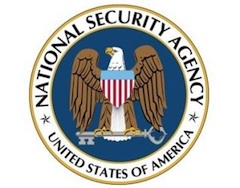The Pentagon is proposing to end an arrangement in which a single military officer leads two of the nation’s main cybersecurity organizations, a move that a leading Democrat said Saturday makes him “profoundly concerned” amid a large-scale hacking campaign on U.S. government computer systems.
Rep. Adam Smith, chairman of the House Armed Services Committee, said in a letter to acting Defense Secretary Christopher Miller that he objects to the way the Pentagon is going about splitting off U.S. Cyber Command from the National Security Agency.
Both organizations currently are headed by Army Gen. Paul Nakasone, an arrangement know as “dual-hatting.”

“Any action to sever the dual-hat relationship could have grave impacts on our national security, especially during a time that the country is wrestling with what may be the most damaging cyberattack in our country’s history,” Smith wrote.
Smith was referring to revelations that elite hackers gained access to U.S. government computer systems and likely purloined a trove of delicate secrets over a monthslong period before being detected. Secretary of State Mike Pompeo said on Friday that Russia was “pretty clearly” behind the hack, which is ongoing. On Saturday, President Donald Trump suggested without evidence that China — not Russia — may be behind the hack and tried to minimize its impact.
A U.S. official confirmed Saturday that the Pentagon has a plan for separating the National Security Agency and Cyber Command. The official spoke on condition of anonymity to discuss an internal matter not publicly announced.
In his letter to Miller, Smith said the Pentagon has not met conditions set by the 2017 defense bill for severing the NSA from Cyber Command. Those conditions include certification by the secretary of defense and the chairman of the Joint Chiefs of Staff that ending the “dual-hat” arrangement will not hurt national security.
Smith sent a similar letter to Gen. Mark A. Milley, the Joint Chiefs chairman.
A spokesman for Milley, Col. Dave Butler, said Milley has “not officially reviewed or endorsed the proposal” for splitting the two organizations.
The notion of splitting NSA from Cyber Command goes back to the Obama administration, which proposed to elevate the status of Cyber Command by making it a unified military command, taking it from under the purview of U.S. Strategic Command. The move reflected growing concern about cyber security.
That move was approved by President Donald Trump in 2017, and it was foreseen that at some point Cyber Command would split away from the NSA, although such a move had strong opponents in Congress.
It’s not clear who the Trump administration might install as head of the NSA if it were split from Cyber Command before President-elect Joe Biden takes office Jan. 20.
Smith questioned the legality and timing of the Pentagon’s proposal to split the organizations.
“I am deeply concerned about measures to terminate the dual-hat structure and request that you immediately consult with the House Armed Services Committee regarding any potential efforts to take such action,” Smith wrote in his letter to Milley, which Smith made public on Saturday.
“Further, given that no assessment has been completed and no certification has been issued, I remind you that any action to terminate the dual-hat relationship with NSA and Cyber Command is not only inadvisable, but is contrary to law.”
Related: The Role of America’s New Unified Cyber Warfare Command
Related: NSA Forms Cybersecurity Directorate to Redefine Cybersecurity Mission














